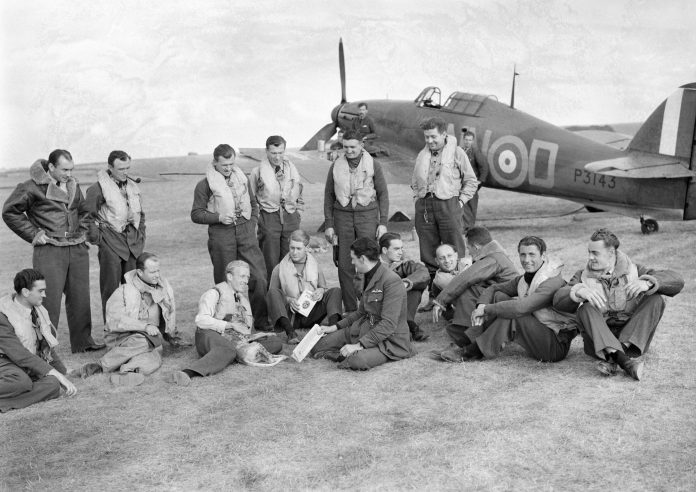On July 10, 1940 the German Luftwaffe began attacking British supply convoys in the English Channel for the first time, marking what the British would come to recognise as the official start of the Battle of Britain.
Men from 15 countries fought alongside the British pilots of the RAF, among them men from Australia, Barbados, Belgium, Canada, Czechoslovakia (now the Czech Republic and Slovakia), France, Ireland, Jamaica, Newfoundland (then a separate dominion within the British Empire), New Zealand, Northern Rhodesia (now Zambia), Poland, Southern Rhodesia (now Zimbabwe) and the United States. While all the pilots involved in the battle served with distinction and the battle as a whole produced 188 Aces (pilots with five or more confirmed kills), the battle also produced several Triple Aces (pilots with fifteen or more kills).
The Battle of Britain officially ended on October 31, 1940 after three and a half months of intense air battles with the Allies losing 1547 aircraft and suffering 966 casualties, including 522 deaths. The Germans lost 1887 aircraft and suffered 4303 casualties including 3336 deaths. The heroism and skill of the men who defended Britain in those dark days saved Britain from Nazi tyranny and paved the way for the eventual victory of the Allies over the Axis powers in 1945. Had the Battle of Britain been lost, the outcome of the entire war may have been very different.
On August 15, 1940 at the height of the battle, an emotional Winston Churchill was moved to coin a phrase that would define the Battle of Britain forever: “Never in the field of human conflict was so much owed by so many to so few.” The pilots of the battle have since then been known as “The Few”.
This unique commemorative collectors’ coin has been produced to mark the 80th anniversary of the Battle of Britain. The coin features Churchill and his famous phrase on the obverse, and detailed depictions of the beloved Hawker Hurricane and the Supermarine Spitfire on the reverse. For details please go to www.rememberww2.com.



























